What is Audio Mastering?
Quick Answer
Audio mastering is the process of preparing an audio recording for various means of distribution - how an audio recording is mastered depends on the type of media, the client’s intentions and desired style, and the medium of distribution. Audio mastering is a complex and intricate process, best reserved for professionals.
What is Audio Mastering in Detail
Audio mastering is a complex process, one that depends on many factors. First and foremost, the type of audio being mastered heavily impacts the processing used and the desired end product.
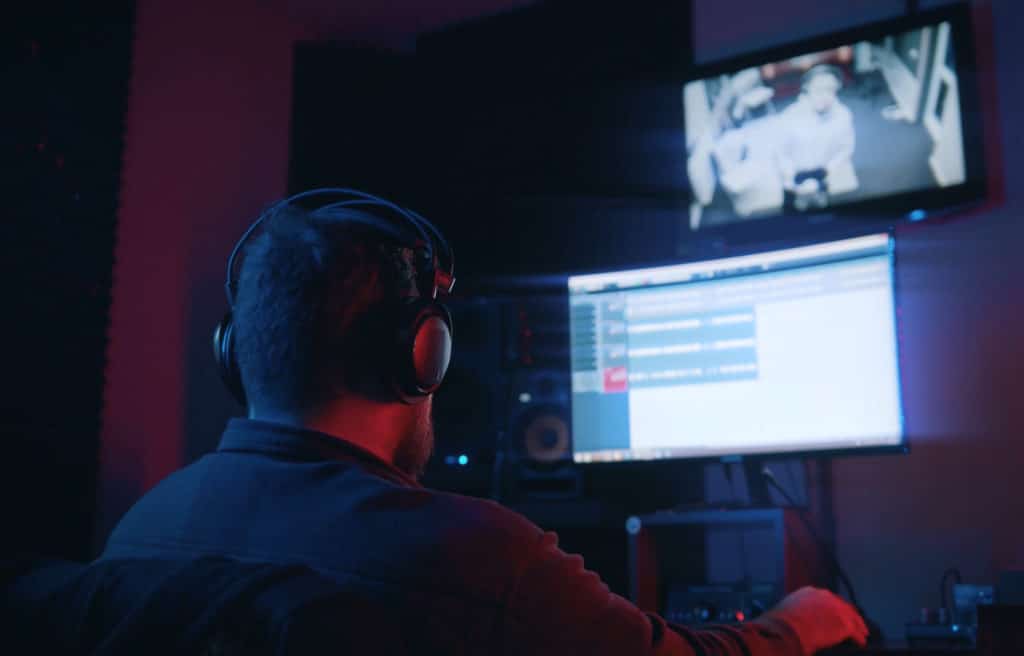
Audio mastering can take multiple forms and be used for multiple production types.
Simply put, a music master will be much different than a master of dialogue for a podcast, or a master of audio for a movie, and so on.
Additionally, the medium onto which the audio is distributed will impact many technical factors, which in turn affects the processing used to create the master.
Of course, there are other things to consider, like the genre of music being mastered, or the streaming service a podcast will distributed to, but let’s cover these topics in more depth later on.
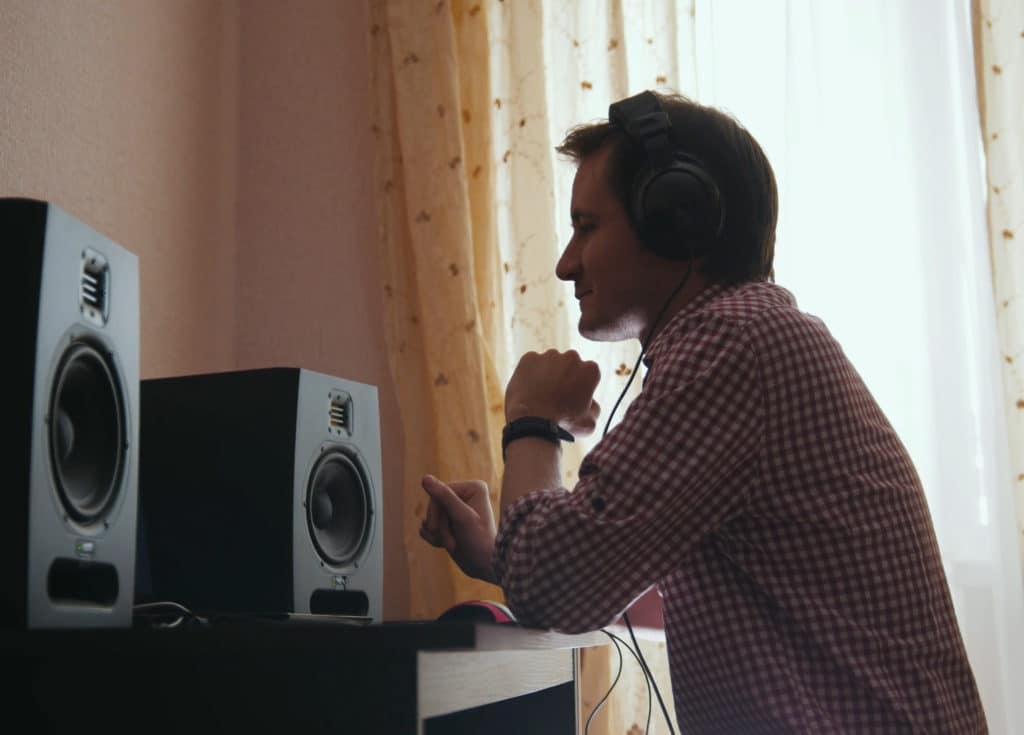
Audio Mastering can be broken down into Music, Dialogue, and Mastering for TV and Film.
With that said, let’s break down audio mastering into 3 distinct camps - music mastering, dialogue mastering, and mastering for film and tv.
We’ll then consider the creative aspects of mastering, and whether or not each type of mastering is a creative process.
We’ll also consider stem mastering and when it can be used to offer more control over an audio recording.
Also,keep in mind that this blog post won’t cover topics in an incredibly technical or in-depth manner , as there’s too much to cover - but, links to other more in-depth blog posts will be made throughout.
If you’re interested in mastering and want to hear your music mastered by us, send us your mix:
We’ll master it for you and send you a free sample for you to review.
What is Music Mastering?
Music mastering is the most common form of audio mastering and is used to prepare a song, EP, or album for distribution. Music mastering typically consists of compression, equalization, stereo imaging, harmonic distortion and saturation, and limiting, all to various degrees and depending on the style of music.
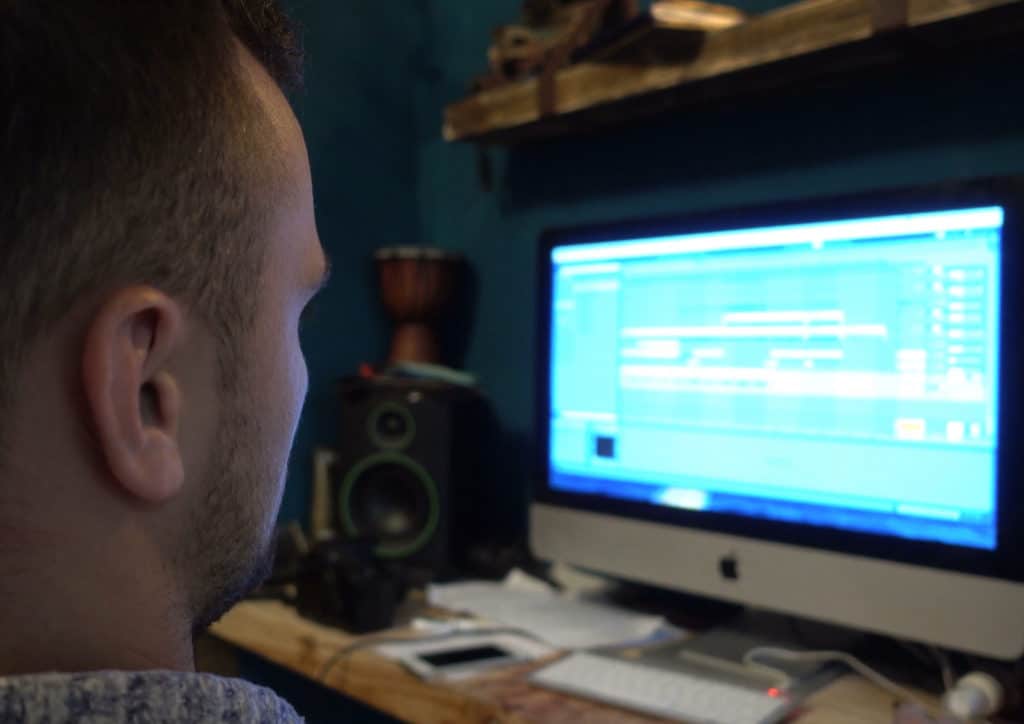
Music mastering creates a music master ready for distribution
The ultimate goal of music mastering is to create a recording that can be played back on consumer equipment with a relatively high degree of fidelity, while still retaining its detail and nuance.
That is the true challenge of music mastering.

Consumer-grade equipment needs to be kept in mind when mastering music.
A music master should be loud enough to cover the noise floor of consumer-grade amplifiers, and full enough to translate details to listeners of these systems, yet it shouldn’t be completely catered toward that type of listening experience.

Music can't be mastered solely for consumer-grade equipment, or it will most likely loose dynamics and depth.
The reason being, if a musical recording is masters incredibly loud and with all of the details pushed to the forefront, true it may sound better on entry-level speakers like earbuds or car speakers, but it’ll sound heavily compressed, and potentially distorted on better speakers.
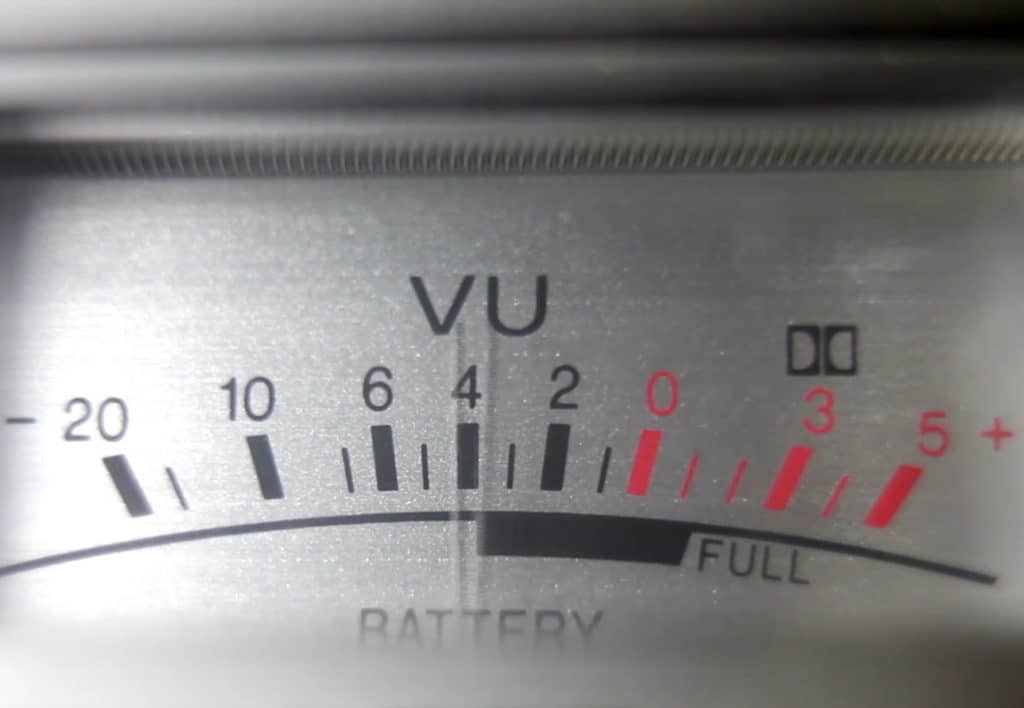
If mastered solely for high-end equipment, a music master won't sound great on consumer-grade equipment.
Conversely, if a master is made quiet, but with all of the details and dynamics retained, it may sound fantastic to listeners with expensive speaker systems and headphones, but it won’t translate well to consumer-grade equipment.
With that in mind, a mastering engineer needs to find a balance between the two. Compromises will always need to be made, but they can be done so in a way that establishes a great sound, both on high-end and consumer-grade equipment.
This struggle will be coupled with many other factors. For example, different genres have different expected loudnesses and frequency responses.

The genre of the music also affects the mastering process.
In that regard, a mastering engineer will need to keep things like expected loudness, the typical frequency response, and other creative options in mind when mastering music.
If you’d like to learn more about mastering for particular genres, check out some of our blog posts on the topic here:
Each blog post and video goes into detail about each genre and how to master for it.
Furthermore, the medium of distribution will impact how music is mastered. For example , the loudness and stereo imaging of a recording distributed on a Vinyl record will need to be lower and more narrow respectively.
This ensures that unwanted distortion and a skipping needle won’t be an issue during playback.

When mastering for a different medium, the technical limitations of that medium need to be accounted for.
Yet the amount of compression on recordings distributed on this medium will need to be higher to avoid large dips and bumps on the vinyl record’s surface.
Changes like the ones just detailed are also true for different mediums and streaming services.
For example, an audio recording that’s intended to be released on Spotify will be mastered to a different loudness (called an integrated LUFS) than one released on Soundcloud. Whereas Spotify introduces a process called loudness normalization, Soundcloud does not.
This “Loudness Normalization ” alters the loudness at which tracks are played back, in turn, making it less advantageous to master a track loudly, if it will be distributed to Spotify.
If you’d like to learn more about loudness normalization and how it affects the mastering process, check out a blog post on the topic:
In it, we cover how mastering is affected by various streaming services, as well as offer specific technical information on how to master for these services.
Is Music Mastering Creative?
Although music mastering is a very technical endeavor, it still offers a great deal of creative freedom to engineers - the processing used can be introduced in a reserved, or a more unorthodox manner. Mastering music creatively really comes down to the artist’s tolerance for a unique or unexpected sound.
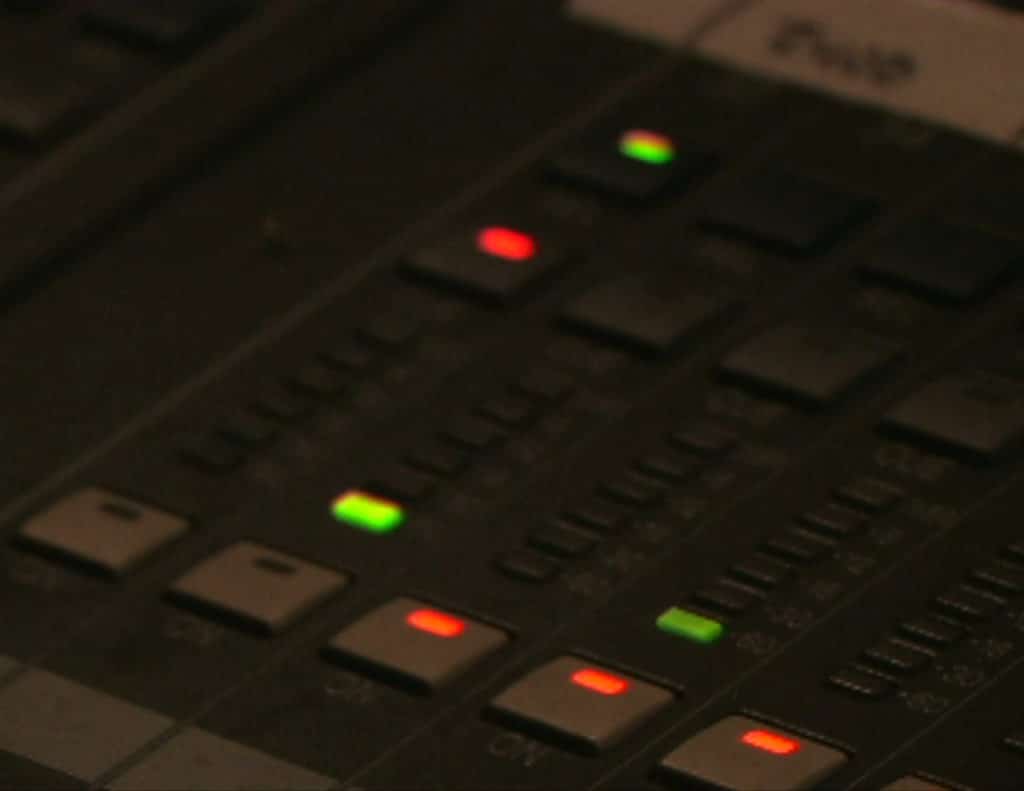
Mixing and producing is arguably more creative, but mastering music is still a creative process.
Granted, mastering music is arguable not as creative of a process as mixing or producing music, but it does leave a little room for new and innovative ideas.
As we’ve discussed previously, mastering music is primarily designed to prepare a musical recording for distribution and to ensure it sounds good on various forms of playback equipment.

Music mastering will always need to operate within the technical limitations of the medium on which its distributed.
With that said, all creative changes to a mix during mastering will need to operate within the framework that technical limitations set; however, creative choices can still be made.
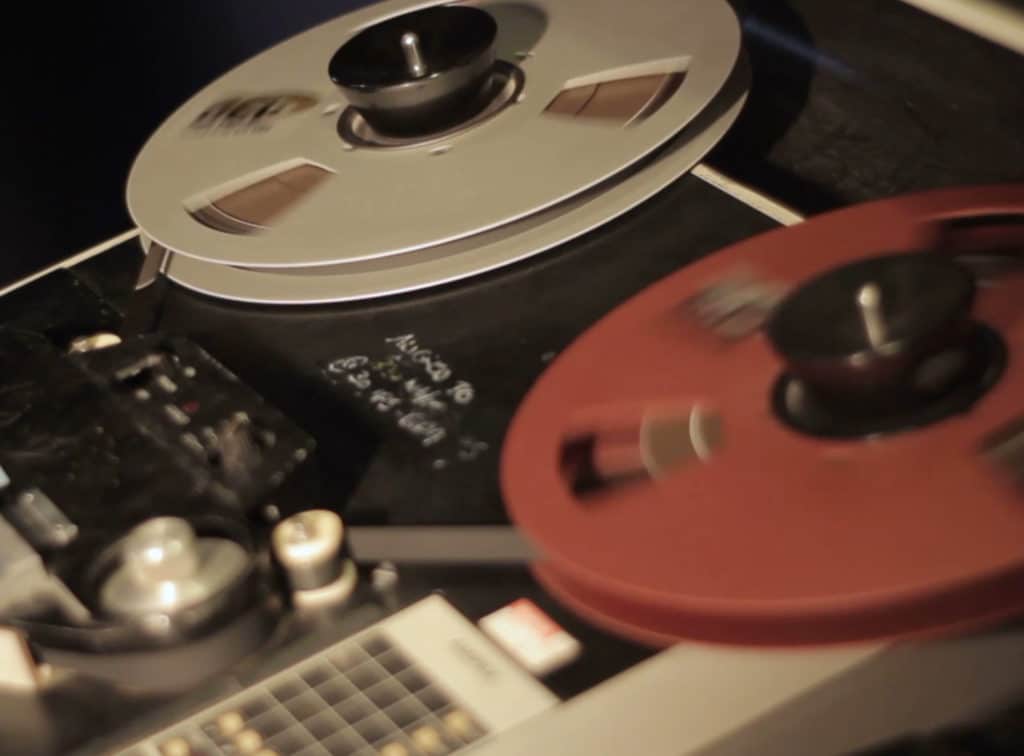
Harmonic distortion and the type of harmonics generated are creative choices during mastering.
For example, the amount and type of harmonic distortion, be it tube, transistor, tape, and so on, is often a matter of taste or preference. An engineer will need to consider how this type of processing helps to either augment or hinder the enjoyability of the music.
The same can be said about other forms of processing. How will certain equalization settings make the music more or less enjoyable, or maybe, how will the compressor and its settings make the music more or less enjoyable?
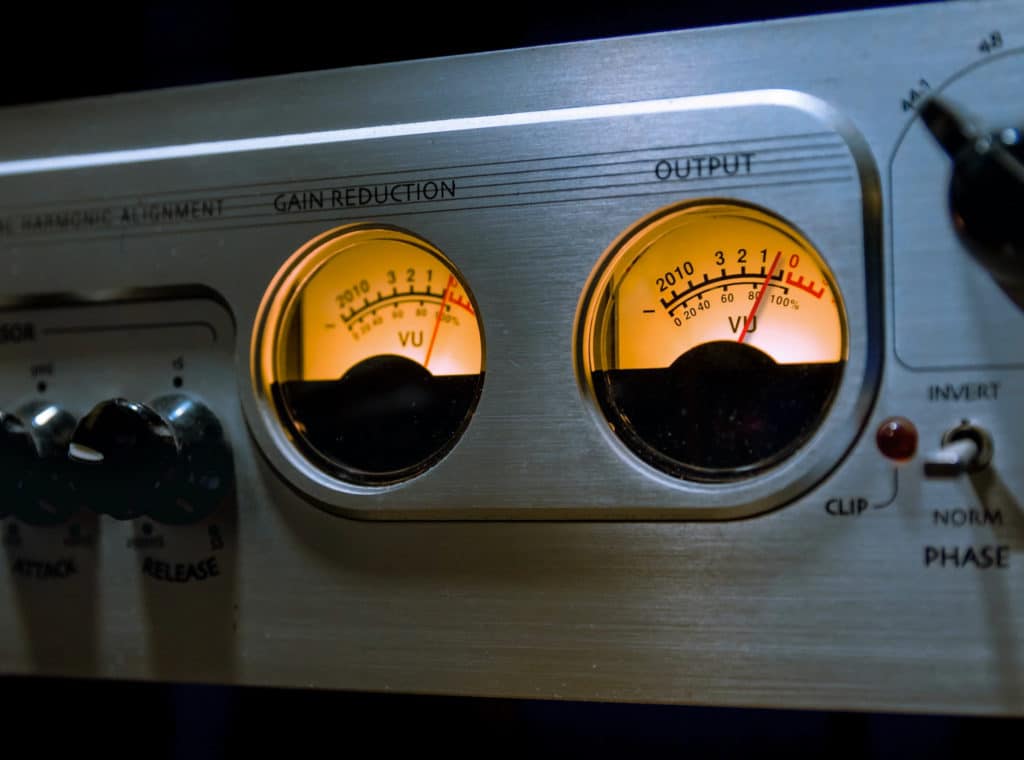
The settings used on various forms of processing can be used creatively and for very specific purposes.
The idea being that although technical, processing and the settings used ultimately serve a creative purpose. The goal of music mastering is ultimately to create something that entertains - as a result, only considering the technical aspects isn't enough to create a great music master.
Can Stem Mastering Be Used to Master Music?
Yes - stem mastering can be used to master music, as it often gives mastering engineers greater control over the recording, and results in a more balanced and dynamically controlled master. Stem mastering, although often more expensive than stereo mastering, augments musical recording in a way stereo mastering rarely can.
What is Dialogue Mastering?
Dialogue mastering is the process of preparing a dialogue recording (for an online video or podcast) for distribution - it includes fewer forms of processing than music mastering and is a slightly easier form of audio production. Dialogue mastering is typically performed without much variation from project to project.

Mastering dialogue is most commonly performed for podcasts and video blog posts.
Whereas other forms of mastering, like music mastering, need to factor in multiple variables like genre, means of distribution, and so one, dialogue mastering is a simpler process.
Dialogue mastering still consists of compression, equalization, and limiting, but rarely includes elements like harmonic distortion and stereo imaging.

Video blog posts and podcasts are almost always distributed online with various streaming services.
Furthermore, dialogue is rarely distributed on mediums other than YouTube, Spotify, and other online streaming services - in turn limiting the number of technical factors that need to be taken into consideration.
For example, when mastering dialogue for a podcast that you intend to put on Spotify, you’ll need these tools:
An equalizer - to balance out the frequency spectrum of the vocal.
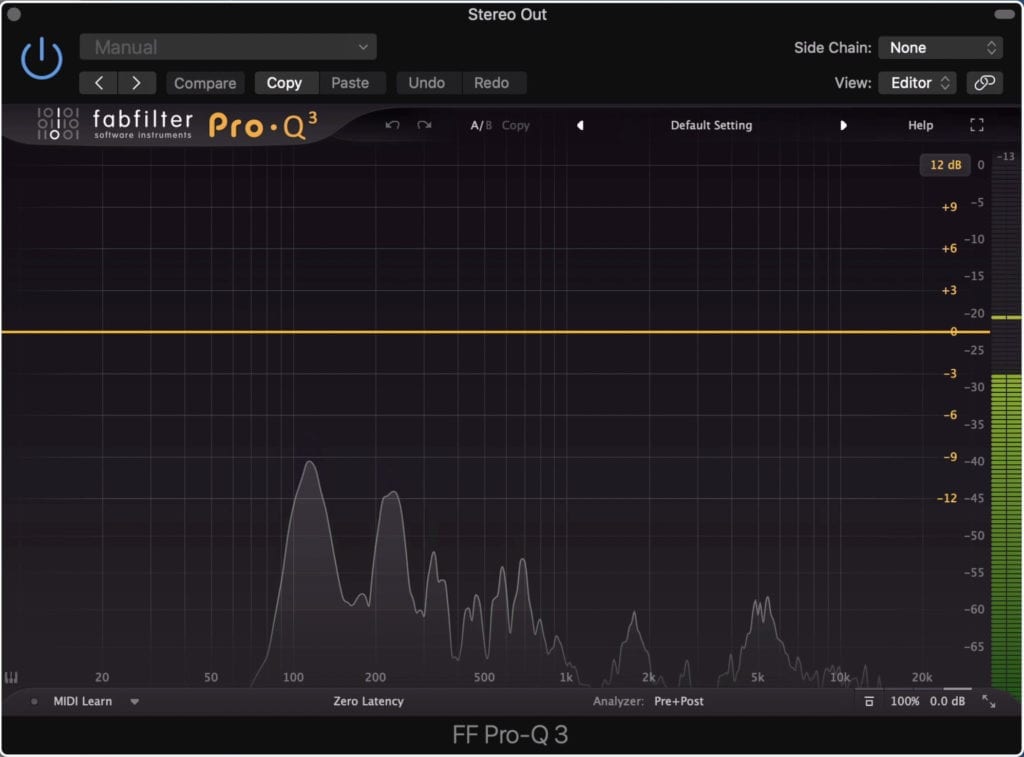
Equalizers can attenuate what you don't like about a recording, and amplify what you do like/what is needed or missing.
A compressor - to control any excessive dynamics in the performance.
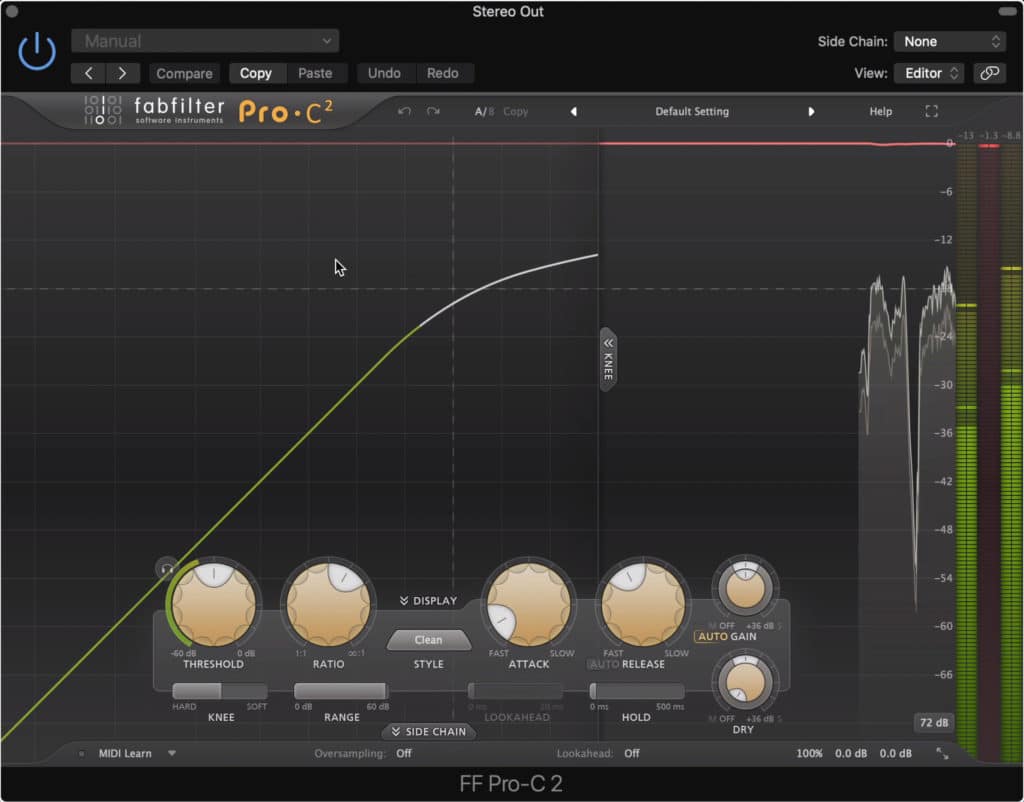
Compressors attenuate strong dynamics, results in a more balanced recording.
A limiter - to set a ceiling for the recording.
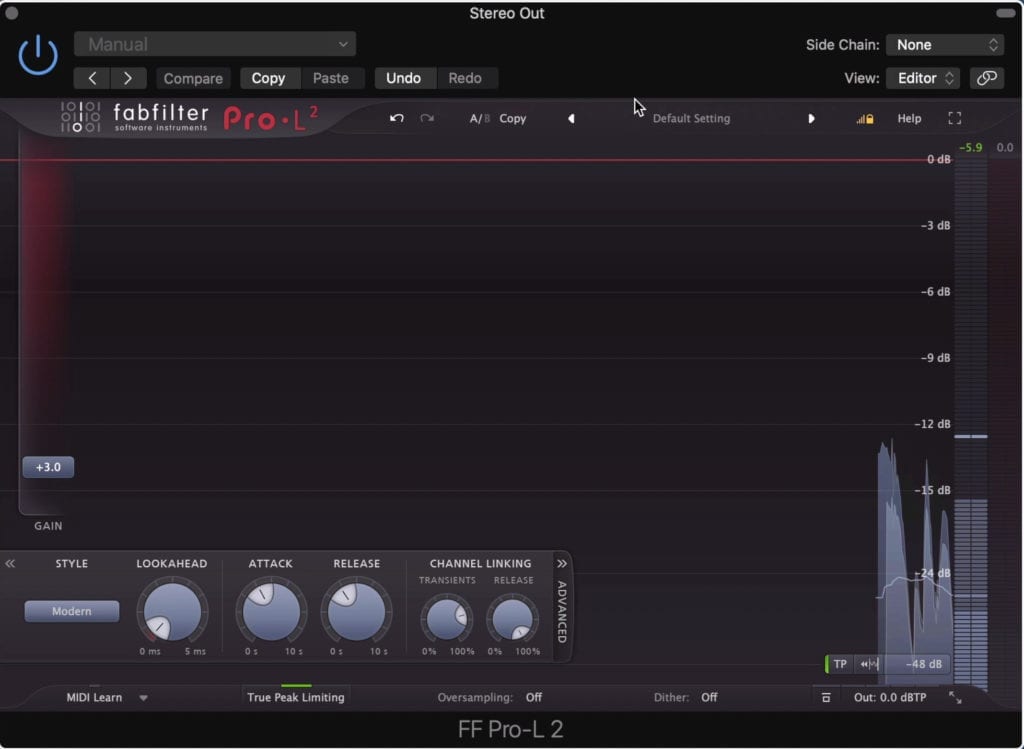
Limiters help protect your signal from digital clipping, as well as help achieve a louder overall level.
An LUFS meter - to measure and monitor the integrated loudness of the dialogue.
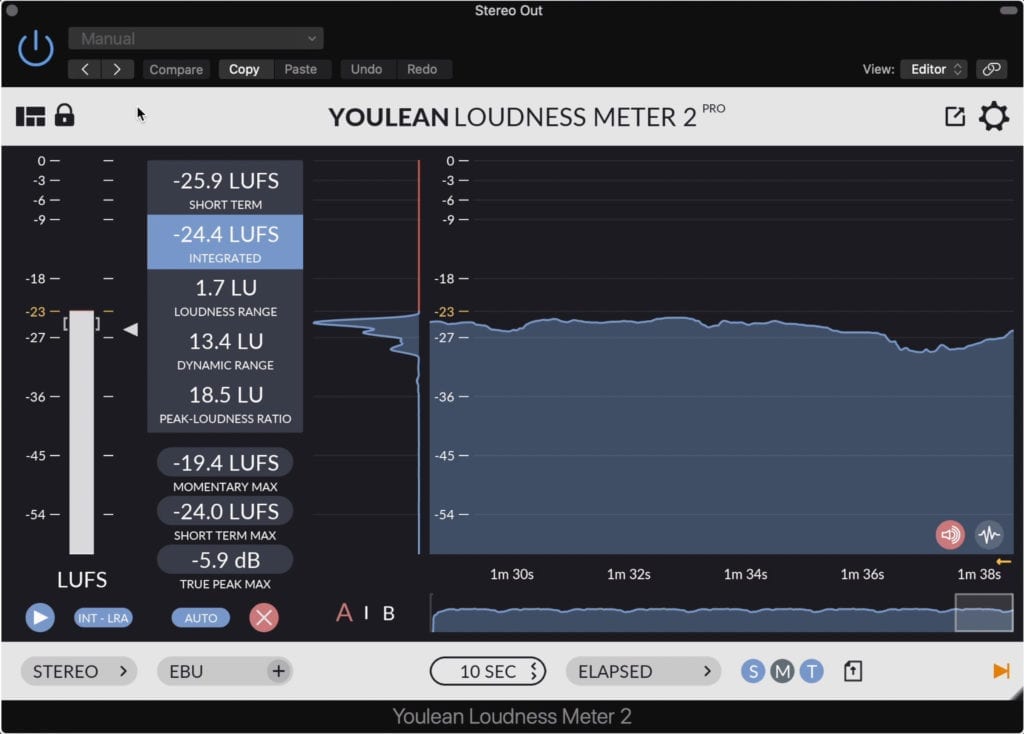
An LUFS meter should be used to monitor the loudness of the dialogue.
Harmonic distortion, although great for music, doesn’t make dialogue sound much better, and can become taxing to listeners over time.
Stereo imaging isn’t needed considered the vocal will most likely remain in the center image, or in other words, remain mono.
Once the dialogue sounds balanced both sonically and dynamically, an engineer simply needs to ensure that the dialogue is as loud as the normalization settings of the digital streaming service it will be released on.
This is where the LUFS meter comes in. For example,if releasing a podcast on YouTube, master the dialogue to an integrated LUFS of -13 to -15.

Spotify normalizes audio to -14 LUFS.
If releasing a podcast on Spotify, master the dialogue to an integrated -14 LUFS.
If you’d like to learn more about mastering dialogue, check out our video and blog post on the topic:
It delves into the technical aspects of mastering dialogue, as well as showcases a realtime dialogue mastering session so you can hear the changes made.
Is Mastering Dialogue Creative?
Although mastering dialogue can offer engineers various choices and challenges, it’s an ultimately straightforward and technical process - so no, mastering dialogue is not creative. Instead, mastering dialogue is almost exclusively a process of preparing a vocal recording for distribution, not one in which creative forms of processing takes place.
Can Stem Mastering Be Used to Master Dialogue?
Although stem mastering can be used, odds are a dialogue mastering session will consist of one stereo file - making it unnecessary, or not even possible to use stem mastering on a dialogue recording. If a podcast or production has unmastered music or sound effects, stem mastering may be useful.
Again, the dialogue will most likely stay mono and consist of one track, so using stem mastering is no needed.
What is Mastering for Film and TV?
Mastering for TV and Film is the process of preparing both dialogue and music to be distributed to either theaters and network television, or more commonly, streaming services like Netflix and Hulu. Mastering audio for both TV and Film is more intensive and technical than mastering dialogue for podcasts.
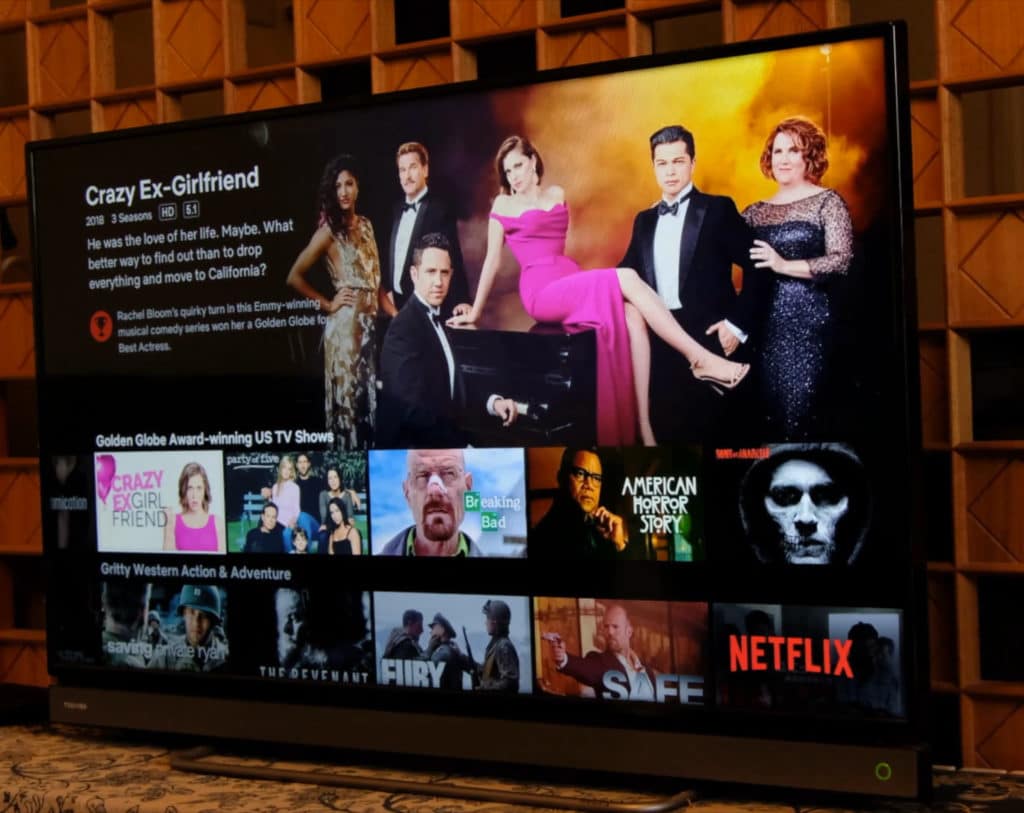
Mastering audio for film and tv is both technical and occasionally creative.
Like mastering music, there are a lot of factors to consider when mastering both music and dialogue, for a television show or a movie.
For example, network television has certain limitations for the loudness of a signal - this process is similar to loudness normalization in that the audio cannot legally be broadcast louder than a certain LUFS.

Audio on television cannot be louder than the figures shown here.
The CALM act of 2010 prohibits the broadcast of signals louder than an integrated -24 LUFS, and with peaks greater than -2dBTP.
There are similar settings for films as well - both in theaters and over services like Netflix. Although these numbers may vary slightly based on the region , both theaters and services such as Netflix normalize audio to an integrated LUFS of -27, with -2dBTP as the max.

Films are rarely streamed louder than these figures.
This will be different for classic films, but modern cinemas and streaming services have seemingly adopted this metric.
You may be curious why TV and film have lower settings than music - the primary reason is that movies and shows are experienced over a longer duration, in turn making louder volumes unpleasant.
Whereas a loud song lasts for 3 or so minutes,a loud movie can range from 1 to 3 hours. So to avoid complaints and hearing loss from viewers, both movies and TV shows have had their loudness’s controlled.
Is Mastering for TV and Film Creative?
Although TV and Film have many technical factors to consider, and limitations more strict than music, yes, mastering for TV and film can be a creative endeavor. The amount of potential creativity in the process truly depends on the type of production and the expected audience.
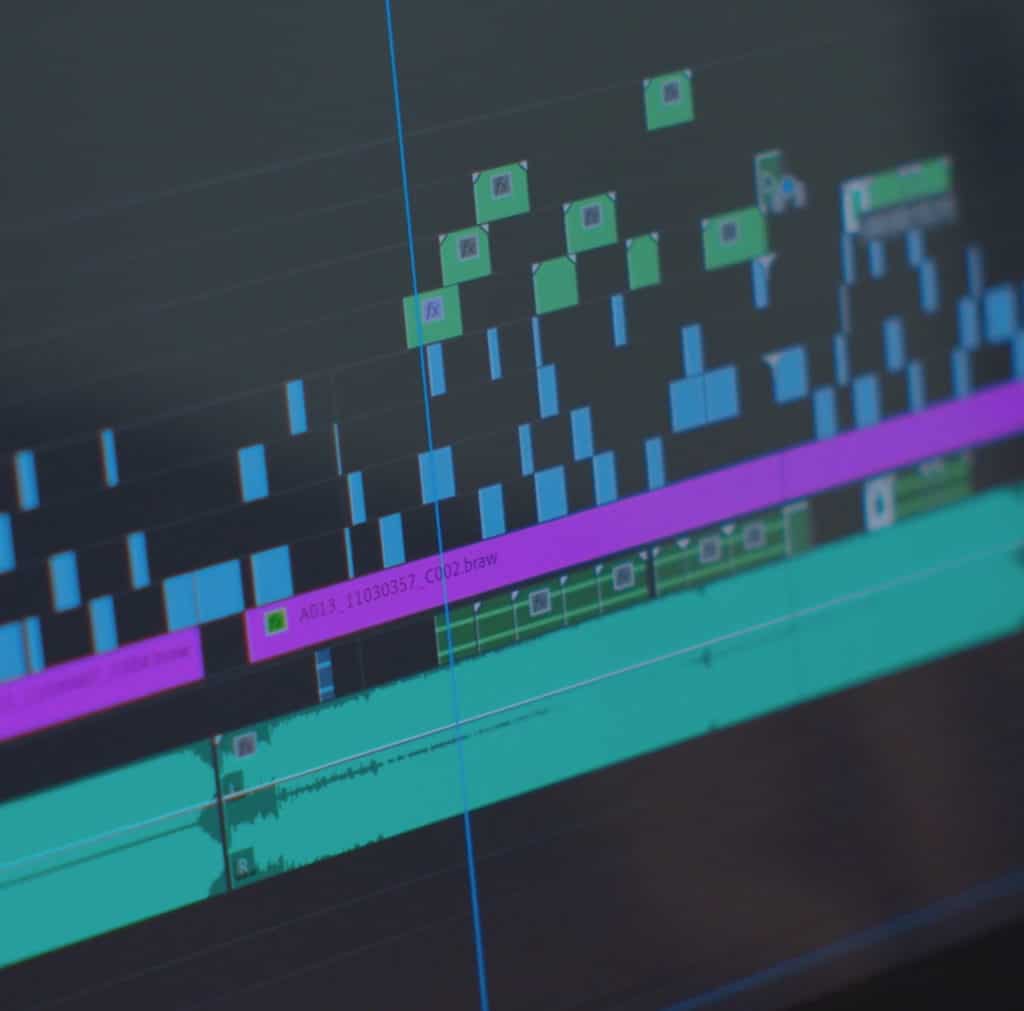
Mastering audio for tv and film is creative, but may be more technical depending on the type of program.
For example, when mastering music and dialogue for a public service announcement, odds are the mastering engineer won’t have a great deal of creative freedom.
But, if they’re mastering a musical, an art film, or anything in which unique audio is valued, some creative choices can be implemented . Granted, the majority of these choices will occur during the mixing stage, but mastering can be used to augment them or make them more perceivable.
Can Stem Mastering Be Used to Master for TV and Film?
Absolutely - stem mastering plays its largest role when mastering music and dialogue for film and television, as multiple versions of songs, and other recordings, need to be made. Instead of creating multiple stereo mixes to be mastered, multiple masters can easily be created through stem mastering.
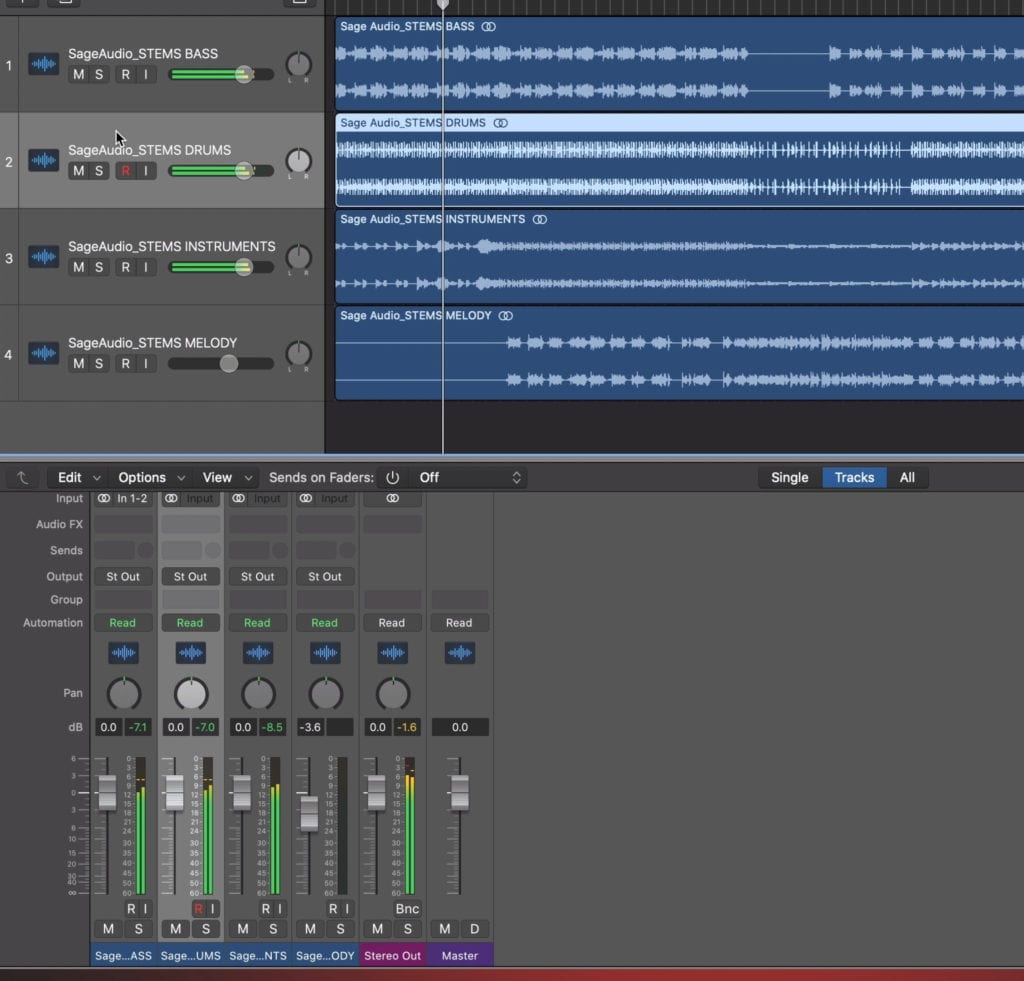
Stem mastering plays a large role in mastering for tv and film.
For example, say multiple versions of the same song were needed for a television show. Maybe 1 without drums, 1 without vocals, 1 with the vocals turned down 3dB, and 1 at a lower LUFS.
The easiest way to create all of these versions would be to use stems and master the project based on these specifications.
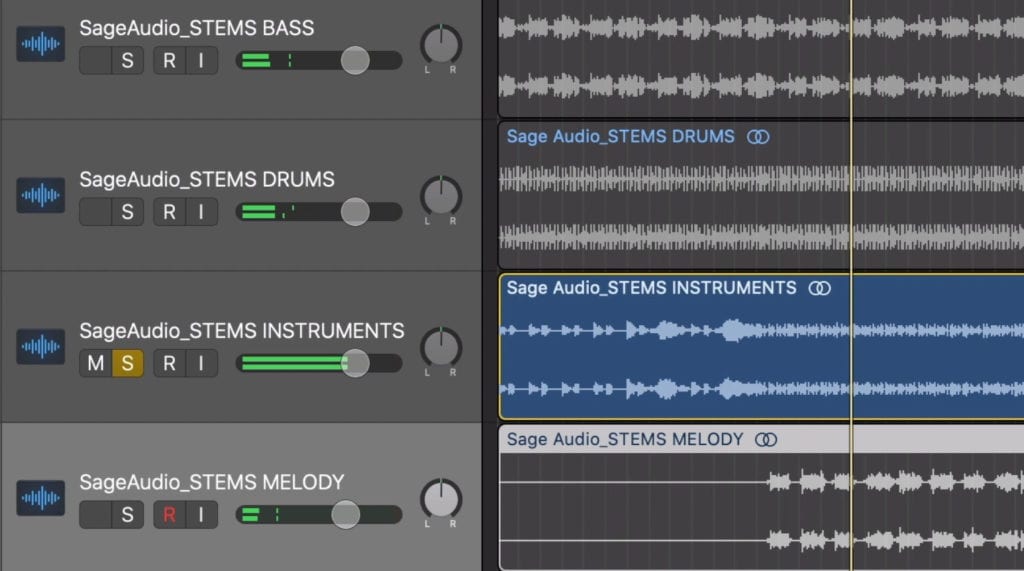
Stem mastering allows engineers to quickly create multiple versions of a song of recording.
Mastering performing stem mastering to create multiple versions of a song or recording, it’s best to insert the processing on the actual stems and not the master output. The reason being, processing stems collectively will cause a different response in the processors used if 1 or more stems are missing.
Ideally, after a stem mastering session, all mastered stems could be added together to create the full mastered version.
In other words, if you had a version without drums, the mastered drum stem could be added back in and it would sound identical to the full mastered version.
If you’d like to learn more about mastering for tv and film, and how to set up a stem mastering session in the ways described, check out our video and blog post.
It'sfull of useful information as well as a video to help with mastering for TV.
Conclusion
Audio mastering is a diverse and unique field. How something is mastered depends on what the project is, the means of distribution, and many other variables.
A talented mastering engineer is prepared for all of these situations and is ready to create something as traditional, or as unorthodox as a client wants.
With that said, it helps to know when to be creative and when to focus more on the technical. It also helps to know whether to use stereo or stem mastering.
In short, music mastering is both creative and technical and can be mastered with stem mastering.
Dialogue mastering is more technical than creative and is rarely mastered with stem mastering.
Mastering for TV and Film is highly technical and creative and is more often mastered with stem mastering.
If you’re looking to have your project mastered, send it to us here:
We’ll master it for you and send you a free sample for you to review.
What type of audio do you master?




